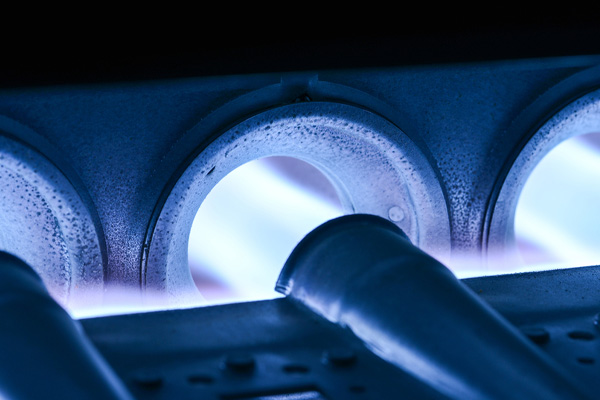Furnace Vs. Heat Pump: Which Option Is Better For Your Home?

In the winter, you want your home to keep you safe and warm. As such, every homeowner tries to find the perfect heating system for individual household needs. There are two very popular options in heating equipment – the heat pump or the furnace. You may find it difficult to determine which is right for you when you consider your options. To help you out, we want to give you an overview of the benefits, drawbacks, capabilities, and features of the furnace vs. heat pump.
What Is The Difference Between A Furnace And Heat Pump?
Table of Contents
This article will talk about the ways in which a heat pump and furnace differ.
What A Heat Pump Is: The Definition Of A Heat Pump
Heat pumps are one type of HVAC equipment that transfers heat rather than actually producing it. They have a fixed heat source that produces thermal energy. The resulting heat is transferred by a heat pump to a thermal reservoir or a thermodynamic component that both stores and ultimately distributes this heat. There are four primary components that every heat pump has: the evaporator, the condenser, the expansion valve, and the compressor.
Energy is transferred by heat pumps via an external power source. They might use outdoor air and then heat it up with electrical power and refrigerant before distributing it throughout buildings. Basically, they work much like an air conditioner, but in the reverse. However, when the months grow warm, a heat pump can also cool down your home, which makes them very versatile.
What A Furnace Is: The Definition Of A Furnace
Furnaces are either gas-fired or oil-fired equipment used for generating heat. They are also called forced-air HVAC systems, given that ducts are used to disburse heated air throughout the home. Warm air is transferred into the living environment via registers or grills.
All furnaces require a heat source like flames. The heat exchanger is heated by the flames, and the resulting heat is then used to warm the air. Heated air is forced by the furnace fan through the heat exchanger. The flue pipe in a furnace is used to carry away all potentially harmful byproducts of the combustion process.
The Benefits And Drawbacks Of A Heat Pump
Compared to other heating systems that are combustion-based, heat pumps do not require any substantial amount of maintenance. They will certainly need annual inspections. So long as they’re well-taken care of, however, they will generally prove quite reliable. Heat pumps also have a very good efficiency rate of fuel or energy to heat conversion, which ultimately reduces carbon emissions. These units also have cooling capabilities that allow them to remain useful during the warmer months of the year. A well-maintained heat pump can last quite a few years, with the average lifespan of heat pumps being between 12 and 15 years with a normal amount of usage.
As far as drawbacks go, heat pumps can be initially expensive and they also cost more to install. Compared to a conventional furnace system, heat pumps are also more difficult to put in. These units run on electricity and as such, their installation can require certain permissions from the local planning department. Extreme weather can also cause damages to a heat pump. They don’t generally perform well in icy temperatures. As a result, they aren’t ideally suited to homes in regions that experience extremely cold weather. If you rely on a heat pump in your home, you should have a backup heat source installed in case there’s ever an extreme drop in temperatures.
The Benefits And Drawbacks Of Furnaces

The furnace system in your home likely runs on gas or heating oil. A furnace is fairly easy to install and the initial cost of a furnace is very reasonable. Furnaces can heat homes fast, which often results in long-term energy savings. The heat that they produce is also very constant and even – an attribute that can be very important in the wintertime.
Among the drawbacks of having a furnace in your home is the fact that this unit may pose a few health risks. Among these are carbon monoxide, fire, and potential explosions. Electric furnaces use a considerable amount of energy and thus, they aren’t a very cost-effective alternative. Moreover, a furnace only has the ability to produce heat. Unlike a heat pump, it does not have the ability to produce or distribute cooled air. If your home will need air conditioning in the summertime, you will have to have separate cooling equipment installed.
Given that furnaces use fans to force heated air, this equipment tends to be loud. Furnaces are also known for blowing and distributing particulates throughout the home whenever homeowners are negligent in performing regular air filter changes.
Conclusion
Understanding the difference between a heat pump and a furnace is important for making informed decisions about the heating system in your home. Consider your home’s layout and design, your spending limit, and your long-term heating needs. For additional advice, be sure to contact a reputable HVAC installation service. Professional advice will help you find the best options for your home and it will also clear up any misconceptions you have.
Call Hart Home Comfort For Expert Residential Heating And Cooling Services
 Throughout the area, Hart Home Comfort has a longstanding reputation for providing reliable HVAC services and systems. Our team is staffed by certified professionals capable of performing fast, friendly, and expert HVAC installations, repairs, and tune-ups. They can get the job done right, at a reasonable price, and on time.
Throughout the area, Hart Home Comfort has a longstanding reputation for providing reliable HVAC services and systems. Our team is staffed by certified professionals capable of performing fast, friendly, and expert HVAC installations, repairs, and tune-ups. They can get the job done right, at a reasonable price, and on time.
You’re going to get the most competitive local prices on HVAC services when you work with Hart Home Comfort. Should your HVAC system need replacing, we’ll help you find the right system and at the right price. Our top priority is always making sure that your home is comfortable and efficient, and that your indoor air quality is safe and healthy. Call Hart Home Comfort right now to schedule an important and get an in-home estimate totally free.
For any questions about what Hart Home Comfort can do for you, give us a call today. Click here to contact us now or call us at (631) 667-3200 to find out more!
